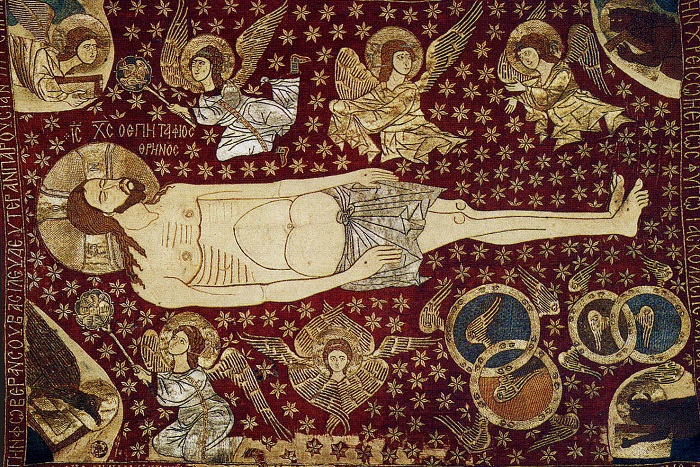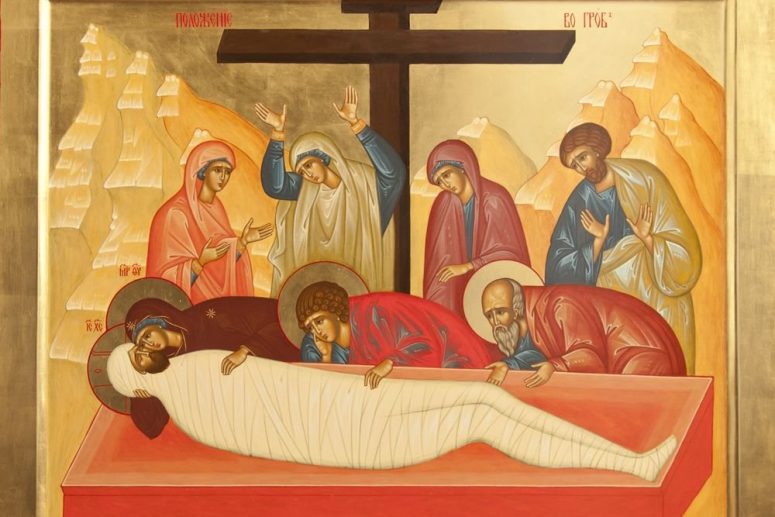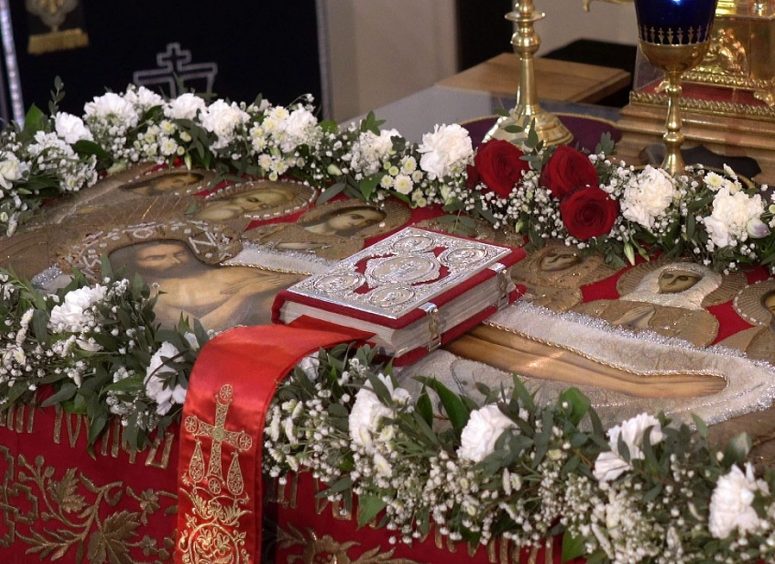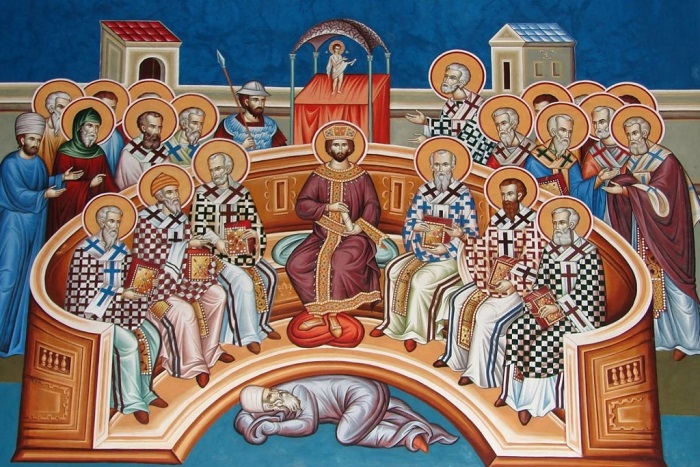
You are guarding the sealed tomb in vain, O guards!
He who grants life to all is no longer there.
– Synaxarion of Holy Saturday
The Church celebrates and experiences the Holy Saturday when Jesus was laid to rest after the suffering He had had to endure for the salvation of the human race. We are justified in calling this day the single most important Saturday of the year, which combines all other Saturdays in and of itself. Why did our Lord Jesus choose this day for his rest? Why was Saturday so important in the Old Testament times? What is the meaning of the Sabbath? In order to be able to answer these questions, we have to look at the religious environment in the world and at the context in which this commandment appeared.
Nowadays, it is naturally assumed that a believer prays to God. However, this has not been the case in pagan religions. Before Christianity, God was detached from prayerful relationships with people. Man prayed to the Lord but not God. Those two terms weren’t synonymous in the early religious history. A heathen is convinced that the original God the Creator who set the world in motion, is no longer actively involved in its day-to-day affairs. Thus, Zeus is the chief god of the Ancient Greek pantheon. Is he the First Cause, the Absolute, the Creator of the world? No, he isn’t. Prometheus says that Zeus is ‘a new leader’. (Aeschylus. Prometheus Bound).
The dominion of Zeus and other Olympic gods was established as a result of a whole lot of bloodshed. Zeus murdered Cronus, who in turn dethroned his father, Uranus, by depriving him of his man parts. There are similar stories about the dethroning the original god and depriving him of his creative power in many other pagan mythologies. Thus, Enûma Eliš claims that the primordial god Abzu the Creator was magically put to sleep by his descendant god Enki and castrated.
The same story is repeated in Hurrian myths where the chief god Alalu was dethroned by Anu. Ugaritic mythology is no exception: Baal is a representative of the fourth generation of gods. He attacks the palace of the chief god whose name is El (Ancient Hebrew also uses the same name for God), wounds that god, and defeats him. When El got another chance to reign, he refuses to do so and obeys Baal’s order to go away to the sources of world order – the sources of rivers and canyons of the earth (See Eliade M. Histoire des croyances et des idees religieuses. Paris, 1976.).

Why do we Christians need to know all those ancient pagan myths? These myths prove that the Gentiles believes that it wasn’t the Creator who actually ruled the world. Pagans regarded the actual ruler, the Lord, as a successor god, whilst the original – progenitor – god was said to have been overthrown by younger gods and became deus otiosus. Even his name is sometimes forgotten. Ovid described the creator of the Cosmos thus: the God, whatever God was he (Ovid. Metamorphoses. 1, 32). The supreme god, according to the Gentiles, was either unreachable or idle. Even if he hadn’t been overthrown, he is so great that he doesn’t care about the earth and its inhabitants so he relegates his power to minor gods, or lords, each of whom is in charge of their own lot or territory. This perception of the Supreme Deity was later developed within the frameworks of Deist religious philosophy.
It was in that joyless environment that Prophet Moses raised his voice: He Who created our world (See Genesis 1:1), He who was the root cause of all being, He who was the God of rest (the God of Sabbath) entered this world and the human history. He wasn’t overthrown, though He was in fact forgotten – but He didn’t lose his power and didn’t forget his creation. Can a woman forget her sucking child, that she should not have compassion on the son of her womb? yea, they may forget, yet will I not forget thee. (Is. 49:15). This news is the Good News, the bold and joyful faith of the prophets of Israel. He who created this world keeps running it. He is the Original Cause and the Absolute of the entire universe, and He is our Lord at the same time. We are ruled by the Creator, not some minor gods. We sing this good news aloud at every Matins service, even though we may have forgotten the original meaning of this expression, this Creed of the Ancient Israel: God is the Lord and He hath revealed himself to us.” [H]ear me, that this people may know that thou art the LORD God, and that thou hast turned their heart back again. (1 Kings 18:37). Christ has granted to all nations this privilege of having God the Creator as our Lord and of worshiping only him.

This is what the original meaning of the Sabbath might be. It is intended for all people to remind themselves every week, year by year, that their God – the God who blesses their work, who grows their crops, who defends them from their enemies and comforts them – is God the Creator, God of rest and Sabbath who created this world and rested from his work on the seventh day. That is why keeping the Sabbath means remembering who our God is, who we were created by, and thanking him for that. It was no accident that the Lord Jesus Christ rested from his work on Sabbath. It was part of his Plan. We keep in mind Apostle Paul’s words that the events of the New Testament are the materialization of Old Testament prototypes and prophecies. That’s why we can say that the Lord lay in the tomb on Saturday so as to show everyone that He was the God of rest – the God of Abraham, Isaac, and Jacob. The Jews hadn’t known that they celebrated Sabbath specifically for the reason that their God would lay in the tomb bodily, be in hell with the soul, and on the Throne with his Father and the Holy Spirit at the same time on that day of the week. He would rise up from the dead on the first day of the week, which Christians will later call the Day of the Lord.



